News
(Author Interview) Bram Stoker-nominated author, Ronald Malfi, sits down with iHorror to Talk Little Girls and More
“…she expected her old home to look different–empty, perhaps, like the molted skin of a reptile left behind in the dirt, as if the house had nothing left to do but wither and die…” – from Little Girls
Last month, award-winning horror author, Ronald Malfi, released his latest novel, Little Girls. (Click HERE if you missed my review) One of the best writers going, Malfi’s power is in his ability to craft creepy stories with eerily delicious descriptions like the one above. I’ve been a fan of this man since reading his first excellent creep-fest, Snow back in the Leisure Book Horror days. He blew me away with the follow-up, Floating Staircase, and has continued to leave me in awe ever since. Little Girls is an excellent addition to Malfi’s body of work.
This week, I got a chance to chat with Mr. Malfi. He shares his influences, his experience, his love of paper books over the electronic landslide, his advice to young writers out there, and much, much more.

Glenn Rolfe: Hey Ronald, you know I dig your work. Thanks for taking the time to do this.
Ronald Malfi: No problem, buddy. Thanks for having me.
GR: How old were you when you got bit by the writing bug? Did you get started right off?
RM: I was probably around 10 or 11 years old when I started writing seriously. By “seriously,” I mean with discipline and regularity. I’d gotten my hands on an old manual Olympia typewriter and would write several pages every day, usually when I came home from school. These early efforts were just as badly written as you might expect, but I loved writing and I recall specific milestones from back then—hitting my first ten-page story, or writing something that exceeded 100 pages which, for a kid my age, was quite a feat—with great fondness and a sense of achievement, even now. Once I was bitten by the bug, I knew I wanted to do it for a living, and never wavered in that determination.
GR: Give me two books that had an early influence/made a large impact on you.
RM: As with most horror writers of my generation, I’ll cite two Stephen King titles—The Eyes of the Dragon, which was the first King book (and possibly the first adult novel) I read as a kid, and then sometime later, King’s It. I remember some kids at school talking about the book, and particularly the controversial sex scene in the book. We were in middle school, so what is that? Eleven years old? So I made it a point to hunt down a copy of the book and search out that controversial scene. Yet when I started reading the book, I was completely shaken by its grandeur and magnificence and forgot all about the scene for which I’d originally gotten a copy of the book. I was roughly the same age as the kids in that novel and it had such a profound effect on me. I’ve still got that original paperback, although it’s tattered to hell and split into two halves. I’ve read it maybe three or four times. A wonderful novel of childhood fears and innocence lost.
GR: Give me two recent works that had a similar impact.
RM: Two books that jump to mind are Girl Imagined by Chance by Lance Olsen and Glen Hirshberg’s The Snowman’s Children. Though neither are exactly “recent,” both of those books are transcendent and highly recommended.
GR: Most of us going right now in the horror biz were huge Leisure Book fans. You released Snow with them. What was the experience like for you?
RM: I’ve got an entire bookshelf dedicated to those old Leisure paperbacks, and it still rankles me to think about what happened there. Without getting into the gritty details of the bankruptcy, I’ll say that I was ecstatic to sign with Leisure and Editor Don D’Auria back in…I guess around 2008 or so. Don initially signed me for one novel, Snow, which did pretty well for them. It was in all the bookstores and garnered me an audience much more expansive than I’d had in the past. If nothing else, I’ll credit Leisure and Don D’Auria for introducing my work to a much wider readership than I could have on my own. I was in New York City for, I think, BookExpo that year—this would have been early 2009, now that I think about it, because I was there to promote Shamrock Alley—and I met Don for some drinks and we went to his office. Man, it was just what you wanted his office to look like, with manuscripts stacked in towers on every available surface, wedged behind the office door, shoved under desks and bookcases. I had stars in my eyes, man. Don offered me free books—I could have probably gone away with 20 paperbacks, but I didn’t want to seem greedy, so I took only a copy of Wrath James White’s The Resurrectionist and Jeff Strand’s Pressure. It was a great trip and Don was a wonderful guy. Before Snow had hit stores (I recall) Don sent me a contract for two additional novels. These were Floating Staircase and Cradle Lake. However, before those contracts were submitted, I could smell smoke on the horizon and started asking questions about my late payments for Snow. In short, I never submitted the contract for Floating Staircase and Cradle Lake, and was able to take them over to my then-current publisher, Medallion Press, who did a magnificent job with those titles. I was also about to get back the rights to Snow, which was ultimately reprinted with Delirium Books and remains in print with Darkfuse. The Leisure book club was a great way to get newer authors into the mainstream and its demise is more than just unfortunate—it’s tragic.
GR: You write a damn good ghost story (The Mourning House, Floating Staircase), but you’re not stuck in that sub-genre. You’ve done aliens, evil plants, Cthulu, and the horror in humans. I’m definitely in the same boat. I can’t see the attraction in writing the same thing over and over. What are your reasons in the variances of subjects or monsters?
RM: Probably just what you’ve said—that I’d get bored writing the same thing over and over again. Some authors find a niche writing…I don’t know…vampire or werewolf or zombie fiction…and man, if it works for them, that’s great. But I’d lose interest doing something like that. I can’t even summon the gusto to pen a sequel to any of my books, let alone write in the same genre for six, seven, ten books.
GR: Is there a book you want to write that might surprise your fans?
RM: Readers who know my earlier works might say that I’ve already written those books. My third novel, The Nature of Monsters, was a mainstream novel about a writer who chases his friend, a poet-turned-prizefighter, from a small Kentucky town to Baltimore. Nothing scary about it, except for the sales numbers. Similarly, people who have gone back and read my fourth novel, Via Dolorosa, have commented that it seemed like a different writer had written it. I was writing books on spec back then and not beholden to any contracts, so in a way, I was free to write whatever I wanted. And that’s exactly what I did.
GR: When I read Floating Staircase, it had the same effect on me as Boy’s Life. I had been writing for less than a year and it almost scared me out of even trying. It was that good. Just your intense story, the mystery, the characters, the beautiful descriptions that you utilize without ever over indulging like some authors. Was there ever a book like that to you. One that made you say, “fuck, I can’t do that.”
RM: It’s funny you mention Boy’s Life, as that book was one of the influences on my writing career, and specifically for my novel December Park—which Mr. McCammon was kind enough to provide a blurb. Talk about star-struck! But, sure, I see what you’re saying; I’ve read plenty of books that are just preternatural in their power. I have always been in awe of writers like Hemingway, Thomas Pynchon, Peter Straub, Robert McCammon, Dan Simmons. I was a young teenager when I first read Lolita, and even though I guess some of the nuances were lost on me at the time, I recognized that I was reading something written by a god, and that it was something I’d most likely never be able to compete with. And I think that’s the trick—you can’t try to write in order to best your betters. There will always be some book out of your reach, and you’ll just wind up hyper-extending your arm grasping for it. The best books are honest, simple books, written in your true voice and telling stories you’re passionate about. That’s it, really. That’s the secret.
GR: Which of your books holds a special place in your heart and why?
RM: Floating Staircase and December Park, both of which hold some very strong autobiographical elements. They were also the two books where the final product was pretty close to how I originally envisioned them in my head. Usually books change form midway through the writing process—a casualty of writing without an outline or notes—but those two pretty much stayed on course, at least as far as the overall tone and feel of the books, if not for the particular plot-points within.
GR: What are some of your favorite films? Horror or otherwise.
RM: Raiders of the Lost Ark; Back to the Future; Gremlins; Jaws; Close Encounters of the Third Kind; Fight Club; The Big Lebowski; Star Wars.
GR: Excellent choices! What’s one of your favorite things to do outside of the writing life?
RM: Spending time with my family.
GR: You’re a big proponent of not getting complacent. You’ve told writers to reach higher. How does a young writer know when they’re ready to reach for that next level?
RM: A lot of newer writers who are published through the small press for, say, their inaugural novel come away as if they’d been hit by a bus. They’re shocked at the pitiable royalty statements, the lack of respect they’re getting throughout the rest of the industry, the lack of interest from booksellers who really have no interest in having you hold a book signing in their stores. This is the reality for some of those writers, and I think my recommendation to those writers is to not try to talk up your achievements (and your publisher, who’s really doing nothing to promote you) and pretend you’re bigger than you are, but to hone your skills, find the right people with whom you should be speaking, and ultimately put yourself in the place you were previously pretending to be. Does that make sense?
GR: Do you advise getting an agent? If you have or had one, what was your experience with one like?
RM: It’s that old chestnut, isn’t it? A bad agent is worse than having no agent at all, but you generally can’t get a good agent until you don’t need one. I currently have an agent, and she was instrumental in landing my current book deal with Kensington. We had a similar game plan for my latest book, Little Girls, and we were always on the same page as each other—no pun intended. She’s also a wonderful sounding board when I begin to question my manuscripts, which I do often. These are invaluable qualities in an agent. Unless you’re happy in the small or indie presses—or if you prefer to self-publish—you’ll eventually need an agent to land a deal with a bigger publishing house. That’s been my experience, anyway. I’d recommend finding out who reps the authors you enjoy reading at a particular publishing company and contacting them. Send them your best, most cleanly edited work, and don’t be an unprofessional asshole about it. If your work is good, someone will want to rep it.
GR: Worst and best experience in your writing life so far.
RM: Things are mostly good with the writing these days. I’ve worked very hard to get to where I am, and after 13 novels, a handful of novellas, and uncountable published short fiction, I’m very happy with what I’ve achieved. I write what I want to write and don’t compromise. I’ve had some wonderful experiences being invited to speak at conferences around the country, meeting wonderful fans and talking with writing groups, speaking with students at all levels, and just being able to write and converse with my readers about my fiction. All of those are wonderful things. Perhaps the lowest period is when I find myself in a funk, suffering a bit of writer’s block, I guess. That’s when I start growing envious of those guys who write nothing but vampire fiction, because I think maybe I could just switch to autopilot and pump out another book if that were the case. But I try to do something different with each new book, and it’s taxing. Not to mention that I’ve got two very young children who also take up much of my time. Nonetheless, I’ve been publishing one novel a year for the past several years now, and plan to continue doing so.
GR: I know you’re not an eBook guy. What gives? Could you ever be swayed?
RM: I’ve got nothing against e-books. Personally, I prefer to hold a book in my hands. I’m extremely obsessive-compulsive about the specific typographical nuances of books, like the font used, the spacing, the margins, the way the pages are cut—these things are just as much a part, or almost as much a part, of reading a book to me as the story. If someone gave you a pill that would fill you up for the day and you’d never have to waste time eating a meal, would you take the pill? Or do you enjoy the taste of steak and pizza and french fries too much? To me, that’s the difference.
GR: Barker, Straub, King, McCammon—Which of these are your favorite?
RM: Christ, how can I answer? King is king. Hands down. But Straub and McCammon have such a beauty to their words. Straub in particular always leaves me wondering what brilliance I have missed between the lines of text, for he writes like someone burying artifacts in the sand. You’ll never find all those artifacts, but you may find enough to put the puzzle together. I was never a really huge Barker fan, though I’ve always enjoyed all his books. Books of Blood were great fun, and I’ve always been partial to his novel Sacrament, which many of his fans tend to overlook.
GR: Name a few books by these guys that you consider under-appreciated.
RM: Well, Sacrament by Barker, as I’ve mentioned. As for McCammon, I’m still astounded by the number of people who haven’t read Boy’s Life. It’s truly a classic, quite possibly the seminal coming-of-age genre novel. Is King under-appreciated at all? I’ll admit a fondness for Eyes of the Dragon, since that was the first King I’d read as a child and it holds a special place in my heart. Not many have read it. Would a Bachman novel count? I’ve always thought The Long Walk was brilliant. And lastly, I think pretty much everything Peter Straub has written is under-appreciated. His novel Julia was a big influence on my latest, Little Girls. His novel The Throat is a staggering achievement which, on its surface, comes across like a post-noir detective novel, but it’s really something much bigger and hungrier than that. I’ve reread The Throat countless times. Many people love Ghost Story, as do I, but The Throat is Peter Straub in all his full Straubiness.
GR: Lastly, would you ever co-write a novel or novella with another author? Maybe someone from Maine?
RM: Ha! No subtlety there, huh? I’ve kicked around the idea of collaborating with a few other authors in the past, but to be honest, for me, writing a book is such a personal, haunting, grueling, individual endeavor, I have no idea how I’d go about sharing such brutality with another human being.
GR: Thanks for your time, Ronald. I appreciate it.
RM: Any time, Glenn. Thanks for having me.
Little Girls, Information and Synopsis
- File Size:1769 KB
- Print Length:384 pages
- Publisher:Kensington (June 30, 2015)
- Publication Date:June 30, 2015
From Bram Stoker Award nominee Ronald Malfi comes a brilliantly chilling novel of childhood revisited, memories resurrected, and fears reborn…
When Laurie was a little girl, she was forbidden to enter the room at the top of the stairs. It was one of many rules imposed by her cold, distant father. Now, in a final act of desperation, her father has exorcised his demons. But when Laurie returns to claim the estate with her husband and ten-year-old daughter, it’s as if the past refuses to die. She feels it lurking in the broken moldings, sees it staring from an empty picture frame, and hears it laughing in the moldy greenhouse deep in the woods…
At first, Laurie thinks she’s imagining things. But when she meets her daughter’s new playmate, Abigail, she can’t help but notice her uncanny resemblance to another little girl who used to live next door. Who died next door. With each passing day, Laurie’s uneasiness grows stronger, her thoughts more disturbing. Like her father, is she slowly losing her mind? Or is something truly unspeakable happening to those sweet little girls?
Praise for Ronald Malfi and his novels
“One cannot help but think of writers like Peter Straub and Stephen King.”
—FearNet
“Malfi is a skillful storyteller.”—New York Journal of Books
“A complex and chilling tale….terrifying.”—Robert McCammon
“Malfi’s lyrical prose creates an atmosphere of eerie claustrophobia…haunting.”—Publishers Weekly
“A thrilling, edge-of-your-seat ride that should not be missed.”—Suspense Magazine
Links to Pre-Order or Purchase
Amazon:
https://www.amazon.com/Little-Girls-Ronald-Malfi/dp/1617736066
Barnes and Noble:
https://www.barnesandnoble.com/w/little-girls-ronald-malfi/1120137979?ean=9781617736063
Or pick up or ask to order at your local independent bookstore or anywhere e-formats are sold!
Ronald Malfi, Biography
Ronald Malfi is an award-winning author of many novels and novellas in the horror, mystery, and thriller categories from various publishers, including Little Girls, this summer’s 2015 release from Kensington.
In 2009, his crime drama, Shamrock Alley, won a Silver IPPY Award. In 2011, his ghost story/mystery novel, Floating Staircase, was a finalist for the Horror Writers Association Bram Stoker Award for best novel, a Gold IPPY Award for best horror novel, and the Vincent Preis International Horror Award. His novel Cradle Lake garnered him the Benjamin Franklin Independent Book Award (silver) in 2014. December Park, his epic childhood story, won the Beverly Hills International Book Award for suspense in 2015.
Most recognized for his haunting, literary style and memorable characters, Malfi’s dark fiction has gained acceptance among readers of all genres.
He was born in Brooklyn, New York in 1977, and eventually relocated to the Chesapeake Bay area, where he currently resides with his wife and two children.
Visit with Ronald Malfi on Facebook, Twitter (@RonaldMalfi), or at www.ronmalfi.com.
Giveaway
Sign up to win one of two paperback copies of Little Girls by Ronald Malfi by clicking the link to the Rafflecopter link below. Be sure to follow the specifics you can do each day to gain more entries.
https://www.rafflecopter.com/rafl/share-code/MjMxYWEzMGI1ZDE2MGYyYTgzYjk4NzVhYzhmMTdmOjE4/?
'Civil War' Review: Is It Worth Watching?
Follow our new YouTube channel "Mysteries and Movies" here.

Lists
Thrills and Chills: Ranking ‘Radio Silence’ Films from Bloody Brilliant to Just Bloody
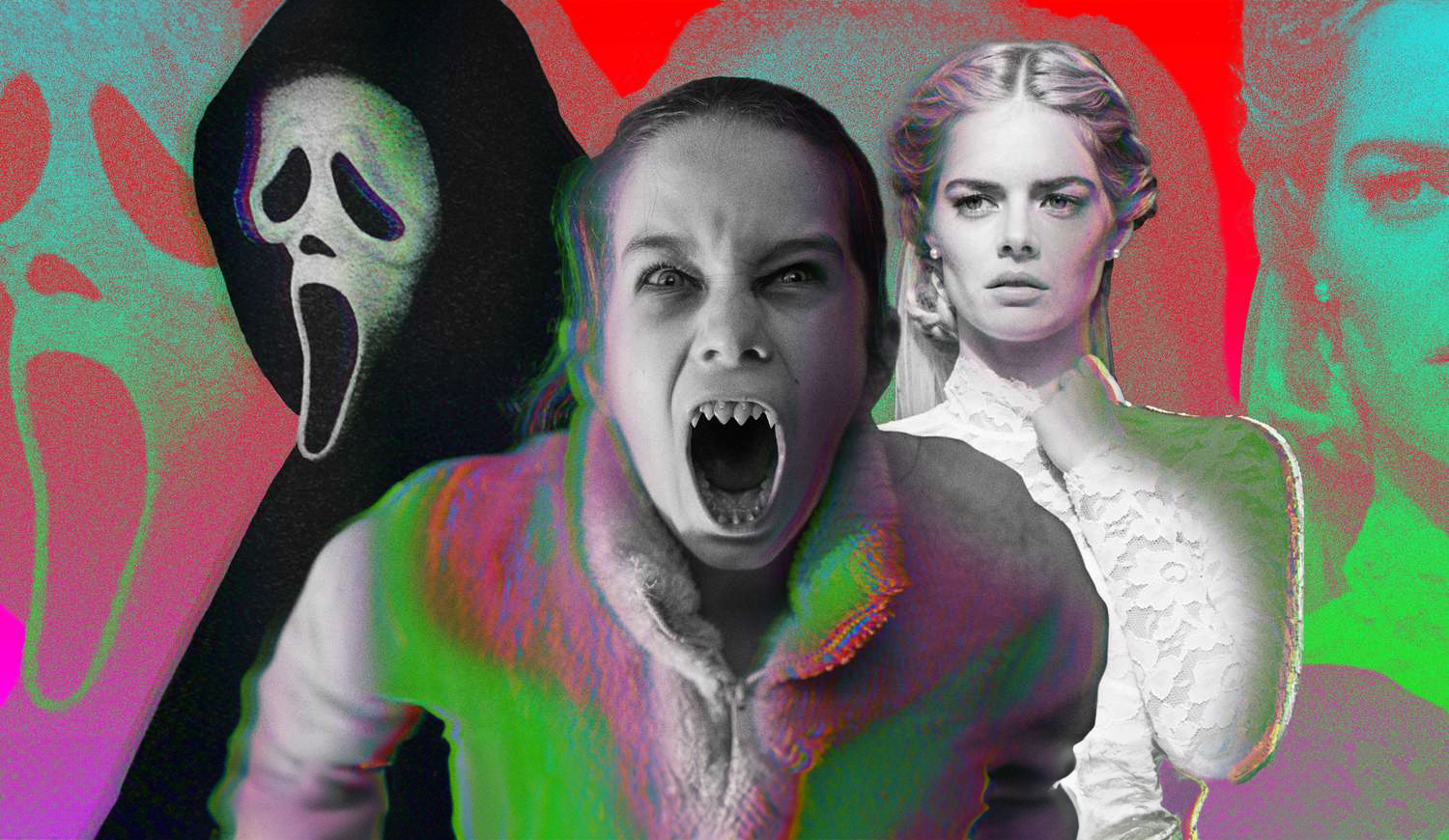
Matt Bettinelli-Olpin, Tyler Gillett, and Chad Villella are all filmmakers under the collective label called Radio Silence. Bettinelli-Olpin and Gillett are the primary directors under that moniker while Villella produces.
They have gained popularity over the past 13 years and their films have become known as having a certain Radio Silence “signature.” They are bloody, usually contain monsters, and have breakneck action sequences. Their recent film Abigail exemplifies that signature and is perhaps their best film yet. They are currently working on a reboot of John Carpenter’s Escape From New York.
We thought we would go through the list of projects they have directed and rank them from high to low. None of the movies and shorts on this list are bad, they all have their merits. These rankings from top to bottom are just ones we felt showcased their talents the best.
We didn’t include movies they produced but didn’t direct.
#1. Abigail
An update to the second film on this list, Abagail is the natural progression of Radio Silence’s love of lockdown horror. It follows in pretty much the same footsteps of Ready or Not, but manages to go one better — make it about vampires.
#2. Ready or Not
This film put Radio Silence on the map. While not as successful at the box office as some of their other films, Ready or Not proved that the team could step outside their limited anthology space and create a fun, thrilling, and bloody adventure-length film.
#3. Scream (2022)
While Scream will always be a polarizing franchise, this prequel, sequel, reboot — however you want to label it showed just how much Radio Silence knew the source material. It wasn’t lazy or cash-grabby, just a good time with legendary characters we love and new ones who grew on us.
#4 Southbound (The Way Out)
Radio Silence tosses their found footage modus operandi for this anthology film. Responsible for the bookend stories, they create a terrifying world in their segment titled The Way Out, which involves strange floating beings and some sort of time loop. It’s kind of the first time we see their work without a shaky cam. If we were to rank this entire film, it would remain at this position on the list.
#5. V/H/S (10/31/98)
The film that started it all for Radio Silence. Or should we say the segment that started it all. Even though this isn’t feature-length what they managed to do with the time they had was very good. Their chapter was titled 10/31/98, a found-footage short involving a group of friends who crash what they think is a staged exorcism only to learn not to assume things on Halloween night.
#6. Scream VI
Cranking up the action, moving to the big city and letting Ghostface use a shotgun, Scream VI turned the franchise on its head. Like their first one, this film played with canon and managed to win over a lot of fans in its direction, but alienated others for coloring too far outside the lines of Wes Craven’s beloved series. If any sequel was showing how the trope was going stale it was Scream VI, but it managed to squeeze some fresh blood out of this nearly three-decade mainstay.
#7. Devil’s Due
Fairly underrated, this, Radio Silence’s first feature-length film, is a sampler of things they took from V/H/S. It was filmed in an omnipresent found footage style, showcasing a form of possession, and features clueless men. Since this was their first bonafide major studio job it’s a wonderful touchstone to see how far they have come with their storytelling.
'Civil War' Review: Is It Worth Watching?
Follow our new YouTube channel "Mysteries and Movies" here.
News
Perhaps the Scariest, Most Disturbing Series of The Year

You may have never heard of Richard Gadd, but that will probably change after this month. His mini-series Baby Reindeer just hit Netflix and it’s a terrifying deep dive into abuse, addiction, and mental illness. What is even scarier is that it’s based on Gadd’s real-life hardships.
The crux of the story is about a man named Donny Dunn played by Gadd who wants to be a stand-up comedian, but it’s not working out so well thanks to stage fright stemming from his insecurity.
One day at his day job he meets a woman named Martha, played to unhinged perfection by Jessica Gunning, who is instantly charmed by Donny’s kindness and good looks. It doesn’t take long before she nicknames him “Baby Reindeer” and begins to relentlessly stalk him. But that is just the apex of Donny’s problems, he has his own incredibly disturbing issues.
This mini-series should come with a lot of triggers, so just be warned it is not for the faint of heart. The horrors here don’t come from blood and gore, but from physical and mental abuse that go beyond any physiological thriller you may have ever seen.
“It’s very emotionally true, obviously: I was severely stalked and severely abused,” Gadd said to People, explaining why he changed some aspects of the story. “But we wanted it to exist in the sphere of art, as well as protect the people it’s based on.”
The series has gained momentum thanks to positive word-of-mouth, and Gadd is getting used to the notoriety.
“It’s clearly struck a chord,” he told The Guardian. “I really did believe in it, but it’s taken off so quickly that I do feel a bit windswept.”
You can stream Baby Reindeer on Netflix right now.
If you or someone you know has been sexually assaulted, please contact the National Sexual Assault Hotline at 1-800-656-HOPE (4673) or go to rainn.org.
'Civil War' Review: Is It Worth Watching?
Follow our new YouTube channel "Mysteries and Movies" here.
Movies
The Original ‘Beetlejuice’ Sequel Had an Interesting Location

Back in the late ’80s and early ’90s sequels to hit movies weren’t as linear as they are today. It was more like “let’s re-do the situation but in a different location.” Remember Speed 2, or National Lampoon’s European Vacation? Even Aliens, as good as it is, follows a lot of the plot points of the original; people stuck on a ship, an android, a little girl in peril instead of a cat. So it makes sense that one of the most popular supernatural comedies of all time, Beetlejuice would follow the same pattern.
In 1991 Tim Burton was interested in doing a sequel to his 1988 original, it was called Beetlejuice Goes Hawaiian:
“The Deetz family moves to Hawaii to develop a resort. Construction begins, and it’s quickly discovered that the hotel will be sitting on top of an ancient burial ground. Beetlejuice comes in to save the day.”
Burton liked the script but wanted some re-writes so he asked then-hot screenwriter Daniel Waters who had just got done contributing to Heathers. He passed on the opportunity so producer David Geffen offered it to Troop Beverly Hills scribe Pamela Norris to no avail.
Eventually, Warner Bros. asked Kevin Smith to punch up Beetlejuice Goes Hawaiian, he scoffed at the idea, saying, “Didn’t we say all we needed to say in the first Beetlejuice? Must we go tropical?”
Nine years later the sequel was killed. The studio said Winona Ryder was now too old for the part and an entire re-cast needed to happen. But Burton never gave up, there were a lot of directions he wanted to take his characters, including a Disney crossover.
“We talked about lots of different things,” the director said in Entertainment Weekly. “That was early on when we were going, Beetlejuice and the Haunted Mansion, Beetlejuice Goes West, whatever. Lots of things came up.”
Fast-forward to 2011 when another script was pitched for a sequel. This time the writer of Burton’s Dark Shadows, Seth Grahame-Smith was hired and he wanted to make sure the story wasn’t a cash-grabbing remake or reboot. Four years later, in 2015, a script was approved with both Ryder and Keaton saying they would return to their respective roles. In 2017 that script was revamped and then eventually shelved in 2019.
During the time the sequel script was being tossed around in Hollywood, in 2016 an artist named Alex Murillo posted what looked like one-sheets for a Beetlejuice sequel. Although they were fabricated and had no affiliation with Warner Bros. people thought they were real.
Perhaps the virality of the artwork sparked interest in a Beetlejuice sequel once again, and finally, it was confirmed in 2022 Beetlejuice 2 had a green light from a script written by Wednesday writers Alfred Gough and Miles Millar. The star of that series Jenna Ortega signed on to the new movie with filming starting in 2023. It was also confirmed that Danny Elfman would return to do the score.
Burton and Keaton agreed that the new film titled Beetlejuice, Beetlejuice wouldn’t rely on CGI or other other forms of technology. They wanted the film to feel “handmade.” The film wrapped in November 2023.
It’s been over three decades to come up with a sequel to Beetlejuice. Hopefully, since they said aloha to Beetlejuice Goes Hawaiian there has been enough time and creativity to ensure Beetlejuice, Beetlejuice will not only honor the characters, but fans of the original.
Beetlejuice, Beetlejuice will open theatrically on September 6.
'Civil War' Review: Is It Worth Watching?
Follow our new YouTube channel "Mysteries and Movies" here.
-

 News5 days ago
News5 days agoWoman Brings Corpse Into Bank To Sign Loan Papers
-
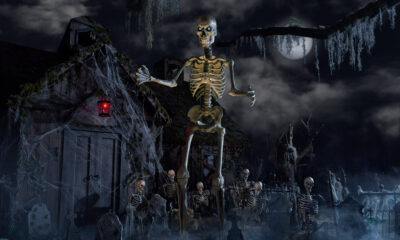
 News6 days ago
News6 days agoHome Depot’s 12-Foot Skeleton Returns with a New Friend, Plus New Life-Size Prop from Spirit Halloween
-

 News4 days ago
News4 days agoBrad Dourif Says He’s Retiring Except For One Important Role
-

 Strange and Unusual5 days ago
Strange and Unusual5 days agoMan Arrested for Allegedly Taking a Severed Leg From Crash Site And Eating It
-
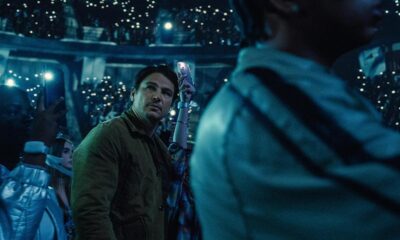
 Movies5 days ago
Movies5 days agoPart Concert, Part Horror Movie M. Night Shyamalan’s ‘Trap’ Trailer Released
-
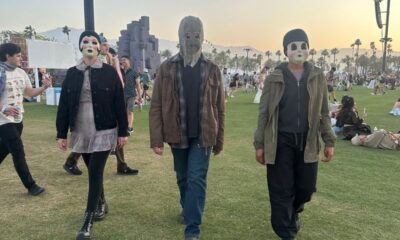
 Movies6 days ago
Movies6 days ago‘The Strangers’ Invaded Coachella in Instagramable PR Stunt
-

 Movies5 days ago
Movies5 days agoAnother Creepy Spider Movie Hits Shudder This Month
-
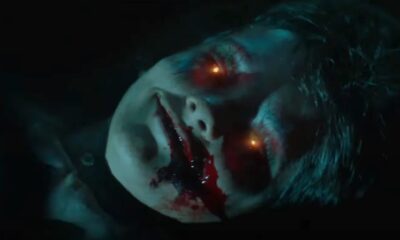
 Movies6 days ago
Movies6 days agoRenny Harlin’s Recent Horror Movie ‘Refuge’ Releasing in U.S. This Month







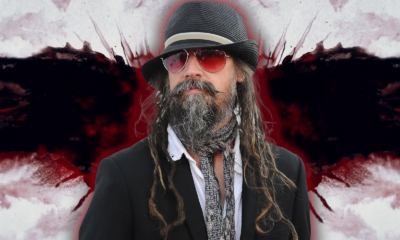

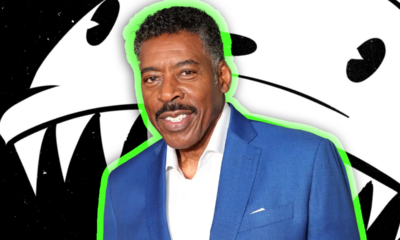

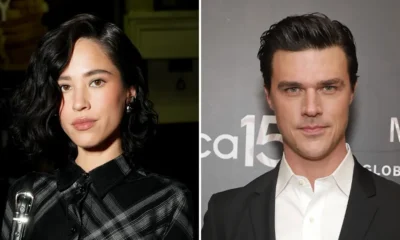


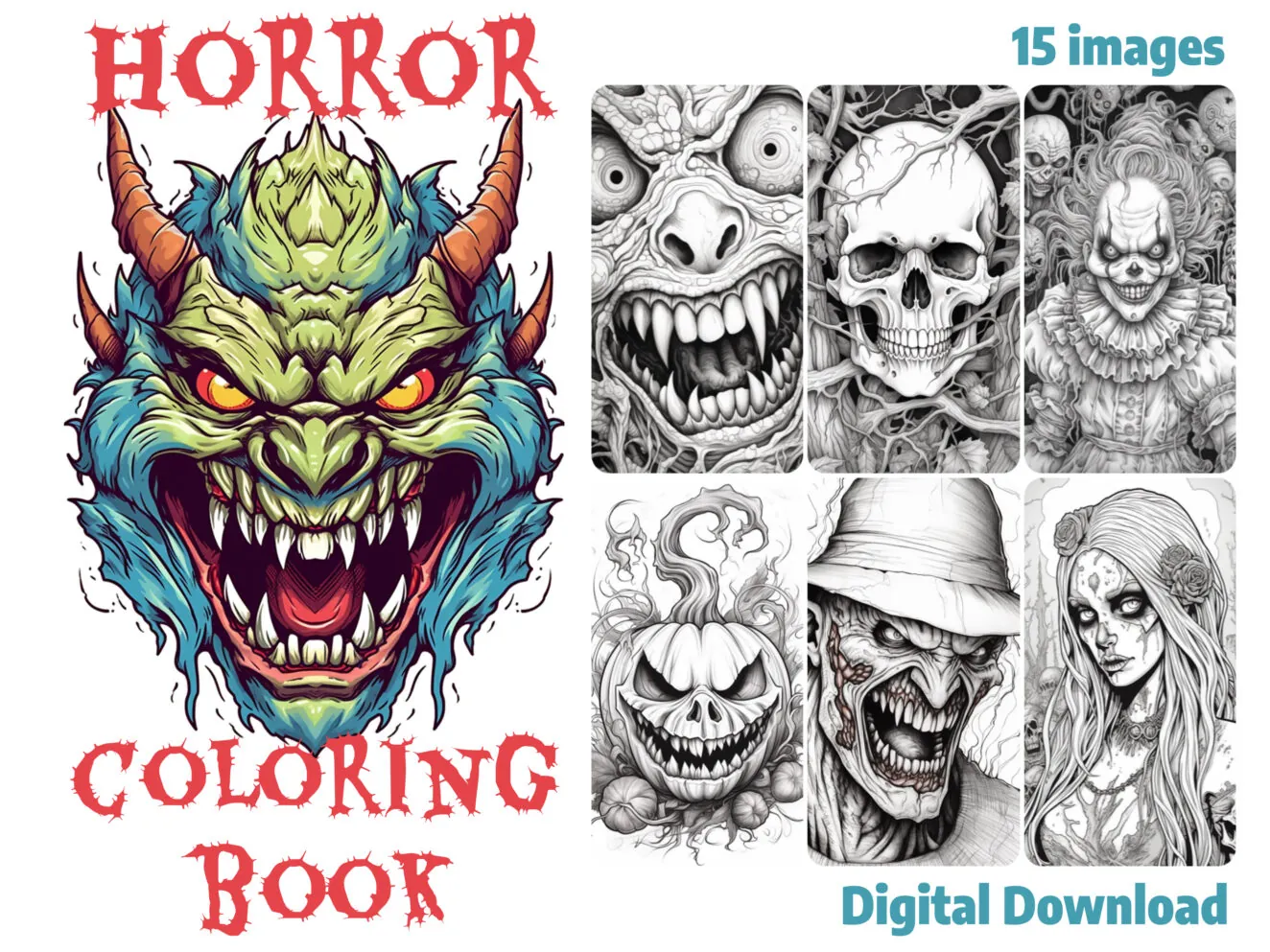















You must be logged in to post a comment Login